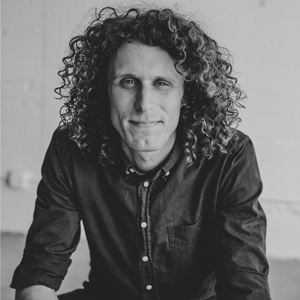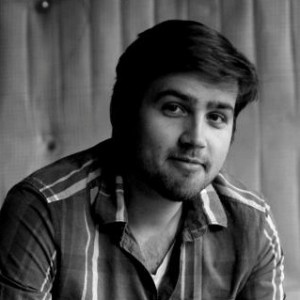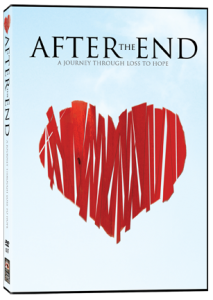Alan D. Wolfelt - Grief Counselor
Author, educator, and grief counselor Dr. Alan Wolfelt is known across North America for his inspirational teaching gifts. His compassionate messages about healing in grief—based on his own personal losses as well as his experience supporting children, teens, adults, and families over the last three decades—speak not only to the intellect but to the hearts of all who hear him. Perhaps best known for his model of “companioning” versus “treating” mourners, Dr. Wolfelt is committed to helping people mourn well so they can live well and love well. A prolific author, Dr. Wolfelt is a regular contributor to several journals. Dr. Wolfelt and his wife, Susan, a family physician, are parents to three children, Megan, Christopher and Jaime. More at: http://www.centerforloss.com
Diana Blaine – USC Associate Professor
Dr. Blaine serves as the associate professor of teaching and writing at University of Southern California, in Los Angeles. She earned a PH.D. in English from the University of California, Los Angeles. Dr. Blaine’s research is focused on analyzing representations of death in American culture. Bio at: http://dornsife.usc.edu/cf/writing-program/faculty-display-dept.cfm?pid=1003110
David Smith – Minister & Therapist
David Smith has served as Executive Director of The Summit Counseling Center since January 2001. David is both an ordained minister and a licensed therapist. Prior to joining The Summit, he was employed by the Palmetto Baptist Healthcare System (now Palmetto Health) as Director of Community Care and Counseling of Aiken, South Carolina from 1996 through 2000. In the early years of his career he served on the staff of the Pastoral Counseling Center (now CareNet) of the Wake Forest University Baptist Medical Center in Winston-Salem, North Carolina. David has served as a pastoral counselor, a psychiatric chaplain and as a marriage and family therapist since 1989. He has been married to Vicki Smith since 1986 and they have two sons, Jonathan and Daniel. More at: http://summitcounseling.org
Elisabeth Kubler-Ross – Pioneer on Hospice Care
Elisabeth Kübler-Ross was a Swiss-born psychiatrist, a pioneer in near-death studies and the author of the groundbreaking book On Death and Dying (1969), where she first discussed what is now known as the Kübler-Ross model. In this work she proposed the now famous Five Stages of Grief as a pattern of adjustment. These five stages of grief are denial, anger, bargaining, depression, and acceptance. In general, individuals experience most of these stages, though in no defined sequence, after being faced with the reality of their impending death. The five stages have since been adopted by many as applying to the survivors of a loved one’s death, as well. She is a 2007 inductee into the National Women’s Hall of Fame. She was the recipient of twenty honorary degrees and by July 1982 had taught, in her estimation, 125,000 students in death and dying courses in colleges, seminaries, medical schools, hospitals, and social-work institutions. In 1970, she delivered the Ingersoll Lectures on Human Immortality at the University of Harvard, on the theme, On Death and Dying.
http://www.ekrfoundation.org
Ken Ross – Founder & Board Member Elizabeth Kübler-Ross Foundation
Ken Ross is the son of the late Dr. Elisabeth Kübler-Ross, the pioneering legend in the hospice and palliative care arena. During her life he traveled extensively with her often-bearing witness to her love of life and compassionate care of the suffering. Ken has spoken to thousands of individuals around the world on the topic of his mother's philosophies, her adventurous antics, and life history, which led to her career in end of life care. A professional photographer by trade, he is currently endeavoring to photograph 101 countries.
Ken is the Founder and a Board Member of the Elizabeth Kübler-Ross Foundation. His responsibilities included liaising with over 80 publishers of Dr. Ross’s work, public relations, archiving her video and audio recordings, as well as preserving her research papers. Despite his busy schedule, he was the principal care provider for his mother during the last 9 years of her life. His work can be found at: http://www.kenrossphotography.com
Reggie Moore – On Loss of a Mother
Reggie began as an adjunct faculty member at Denver Seminary in 2007. In 2008, he became an instructor of counseling. He is a member of the American Counseling Association and the Association of Counselor Education and Supervision.
In the film, Reggie speaks about the loss of his mother who died in October 2012. He was very close to her and they spoke daily on the phone, checking in on each other constantly. “I would never say I was her peer because she had a wisdom that I still don’t understand to this day” Reggie notes when he discusses their positive relationship. Reggie’s story focuses primarily on the shock that occurred following her death and how he felt cold and reborn into a new world without her there with him.
Reggie is a second year PhD student at the University of Northern Colorado. He earned a MA from Colorado Christian University, and a BA from the University of Kansas. He has served as an Adjunct Professor of psychology and counseling at Colorado Christian University. Research interests include the treatment of historical trauma within the African-American community using an integration of narrative, medical and psychosocial approaches; and the treatment of adolescents and family systems from existential and systemic perspectives and modalities.
Molly Jackson – On Loss of a Daughter
Molly Jackson lives in Park City, Utah with her husband Vic and two young children Peter and Zoe. Her first born daughter, Lucy, died in a choking accident in May of 08. She was two years old.
In the film, Molly vividly recalls how she and her husband raced their daughter Lucy, who had choked on a piece of apple, to the nearby fire station as they attempted to dislodge the food from her throat. The fire station had closed. Nearby people tried to help them until finally Lucy was airlifted to the hospital, where she remained in a coma for some time. On the final visitation day, Molly recounts how they painted Lucy’s nails to do something nice for her before allowing their families to join them and share memories and thoughts on life and death. “I never really wanted to be a mom, and I got this angel and I’ve learned so much from her.” Molly revealed during her turn to speak during the ceremony before she and her husband allowed Lucy to be removed from the machines and her liver and kidneys were donated to help save another life.
Molly is now a regular blogger, at hopesmilingbrightly.com, often sharing her journey since the loss of Lucy with others who have had similar experiences.
Ben Harris – Loss of a Father and Two Brothers
Ben lives with his wife Gabi in Decatur, Georgia. He graduated from Emory University, with a major in creative writing and went on to be a founding member of Hob Nob, a unique start-up designed to help college students find and follow their callings in life.
In the film Ben talks about losing his dad to a heart attack at age 49, his younger brother Christopher to a prescription drug overdose at age 21, and his younger brother Michael, a soldier, to suicide in the barracks after struggling with PTSD. “I’ve heard it said that suicide is a permanent solution to a temporary problem – its just tragic because there’s so much unfulfilled potential.” Ben says when he reveals he realizes that all death is hard to fathom, but the idea of suicide feels so fundamentally different. The soldiers from Michael’s platoon all signed an American flag for Ben with personal messages and later in the film Andrew and Ben visit Michael’s grave to share a holiday cocktail with him.
Jeff O’Neill – Loss of a Daughter
Jeff serves as the Sr. Project Manager at Mitchell Mechanical. He graduated from Bradley University in Peoria, Illinois with a BS in construction. Jeff and Shirley live in Marietta, Georgia. They have two grown sons, Matthew and Andrew.
In the film Jeff speaks, along with his wife Shirley about unexpectedly losing their first-born daughter Sarah from a blood clot in her knee. He recalls how Sarah spent the day on the couch, sick, watching old movies and that when she finally walked upstairs to go to bed, the blod clot moved up into her lungs and shut down her whole system, causing her to collapse onto the ground. “I never expected it to be so painful, for so long, and its a pain unlike anything else I’ve ever experienced.” Jeff admits. He later confesses that the night they lost Sarah was surreal and felt like an out of body experience because there was no way it could be happening to him.
Jon Skaggs - Loss of a Father and Brother
Jon lives in Los Angeles, California where he is the founder and CEO of s2 Artists a music production and publishing company. Beginning his career as a drummer, Jon has toured nationally with several bands including Tyler Hilton.
In the film Jon speaks about losing his father when Jon was 13 years old. Many people told him he had to “man up” and look at his family, but he was too young to process this notion. Later in the film, he reveals that he found out this his brother Todd was in the hospital and had already coded multiple times from an infection caused by an oral surgery before they had even contacted the family. “I can’t explain that part of grieving – the spiritual connection you have with someone.” Jon concludes when he tries to explain how he felt his own spirit drifting away from his body in the wake of his brother’s death. Jon’s work can be found at: http://s2artists.com/
Holly Welles – Loss of Sister
Holly lives in Cleveland, Georgia with her husband and six year old daughter. She graduated from the University of Georgia.
In the film she speaks about losing her younger sister, Chelsea Kiessling, in a fatal car accident in March 2012. Holly recalls very specifically the moments in which she arrived at the hospital and her stepfather informed them that Chelsea had passed. She recounts how she collapsed to the ground and her brother reacted by becoming physically ill upon hearing the news. She and Andrew discuss each of Elisabeth Kubler-Ross’ steps of the grieving process and how her family processed waves of guilt and anger as they recovered from their loss. “We were literally two minutes too late to say goodbye, and she was unconscious… but it would have been nice to know she was at least still here.” Holly admits when she talks about her regrets in being unable to properly say goodbye to her sister. Holly blogs at: http://thisischelseakiessling.blogspot.com

 Michael Ross | Producer
Michael Ross | Producer
